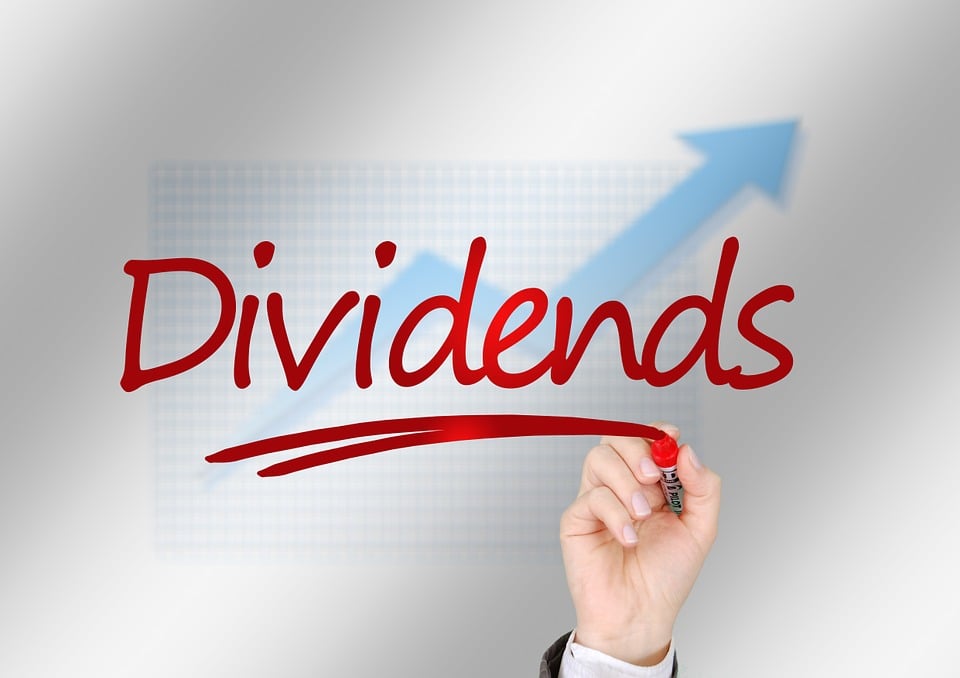3 Dividend Stocks To Maximize Your Retirement Income

Image Source: Pixabay
Strange but true: seniors fear death less than running out of money in retirement.
And older Americans have legitimate reasons for this worry, even if they have dutifully saved for their golden years. That's because the traditional ways people manage retirement may no longer provide enough income to meet expenses - and with people generally living longer, the principal retirement savings is exhausted far too early in the retirement period.
Your parents' retirement investing plan won't cut it today.
For example, 10-year Treasury bonds in the late 1990s offered a yield of around 6.50%, which translated to an income source you could count on. However, today's yield is much lower and probably not a viable return option to fund typical retirements.
The impact of this rate decline is sizable: over 20 years, the difference in yield for a $1 million investment in 10-year Treasuries is more than $1 million.
In addition to the considerable drop in bond yields, today's retirees are nervous about their future Social Security benefits. Because of certain demographic factors, it's been estimated that the funds that pay the Social Security benefits will run out of money in 2035.
So what's a retiree to do? You could cut your expenses to the bone, and take the risk that your Social Security checks don't shrink. Or you could find an alternative investment that provides a steady, higher-rate income stream to replace dwindling bond yields.
Invest in Dividend Stocks
As we see it, dividend-paying stocks from generally low-risk, top notch companies are a brilliant way to create steady and solid income streams to supplant low risk, low yielding Treasury and fixed-income alternatives.
Look for stocks that have paid steady, increasing dividends for years (or decades), and have not cut their dividends even during recessions.
A rule of thumb for finding solid income-producing stocks is to seek those that average 3% dividend yield, and positive yearly dividend growth. These stocks can help combat inflation by boosting dividends over time.
Here are three dividend-paying stocks retirees should consider for their nest egg portfolio.
Axis Capital (AXS) is currently shelling out a dividend of $0.44 per share, with a dividend yield of 3.18%. This compares to the Insurance - Property and Casualty industry's yield of 0.17% and the S&P 500's yield of 1.6%. The company's annualized dividend growth in the past year was 2.33%.
COPT Defense (CDP) is paying out a dividend of $0.29 per share at the moment, with a dividend yield of 4.45% compared to the REIT and Equity Trust - Other industry's yield of 4.23% and the S&P 500's yield. The annualized dividend growth of the company was 3.64% over the past year.
Currently paying a dividend of $0.28 per share, HP (HPQ) has a dividend yield of 3.66%. This is compared to the Computer - Mini computers industry's yield of 0.91% and the S&P 500's current yield. Annualized dividend growth for the company in the past year was 5%.
But aren't stocks generally more risky than bonds?
Overall, that is true. But stocks are a broad class, and you can reduce the risks significantly by selecting high-quality dividend stocks that can generate regular, predictable income and can also decrease the volatility of your portfolio compared to the overall stock market.
An advantage of owning dividend stocks for your retirement nest egg is that numerous companies, particularly blue chip stocks, raise their dividends over time, helping alleviate the impact of inflation on your potential retirement income.
Thinking about dividend-focused mutual funds or ETFs? Watch out for fees.
If you're interested in investing in dividends, but are thinking about mutual funds or ETFs rather than stocks, beware of fees. Mutual funds and specialized ETFs may carry high fees, which could lower the overall gains you earn from dividends, undercutting your dividend income strategy. Be sure to look for funds with low fees if you decide on this approach.
Bottom Line
Regardless of whether you select high-quality, low-fee funds or stocks, looking for a steady stream of income from dividend-paying equities can potentially lead you to a solid and more peaceful retirement.
More By This Author:
3 Stocks That Are Better Bets Than Cryptos In 20243 Energy Stocks With Fortress Balance Sheet To Gain In 2024
Airlines Likely To Fly High In 2024 On Rosy Passenger Revenues
Disclosure: Zacks.com contains statements and statistics that have been obtained from sources believed to be reliable but are not guaranteed as to accuracy or completeness. References to any specific ...
more


